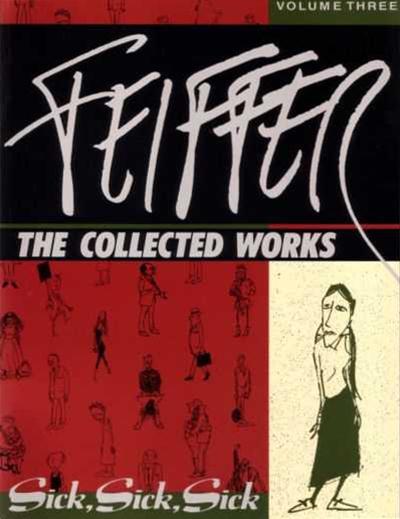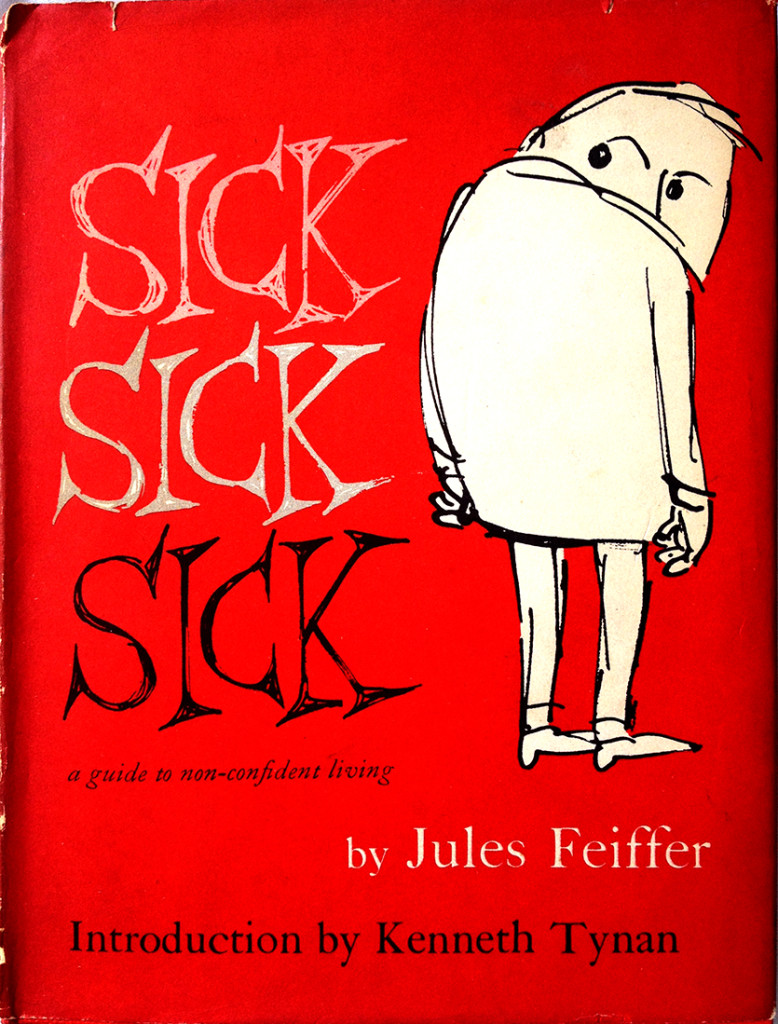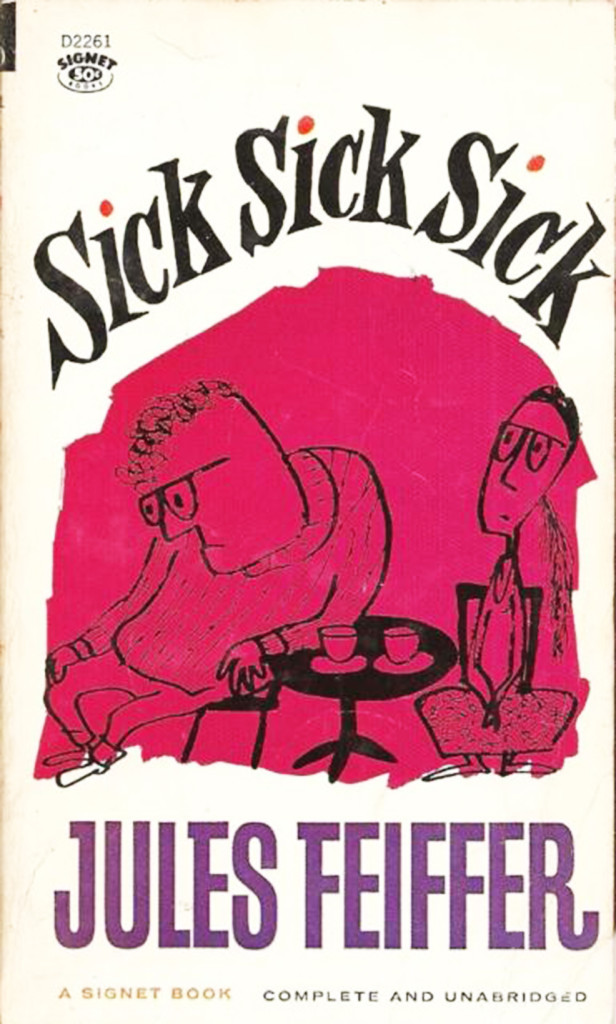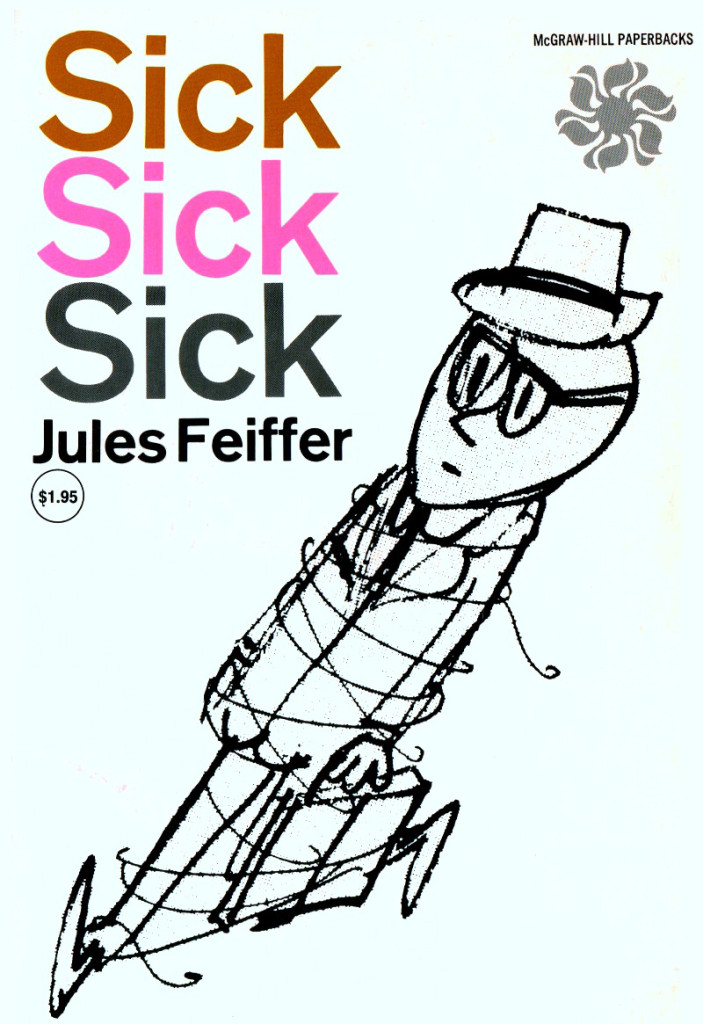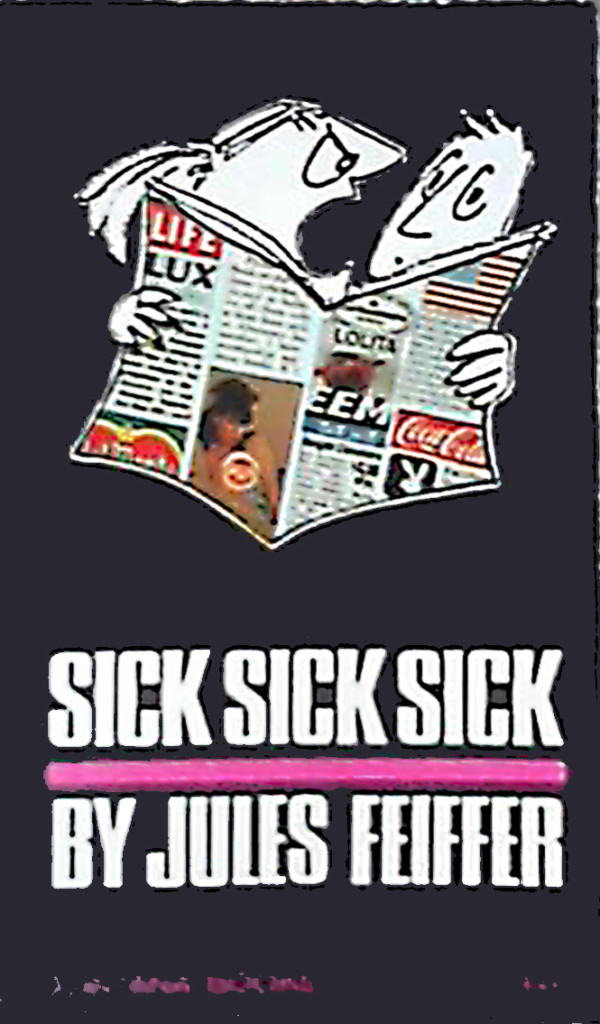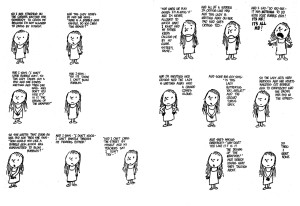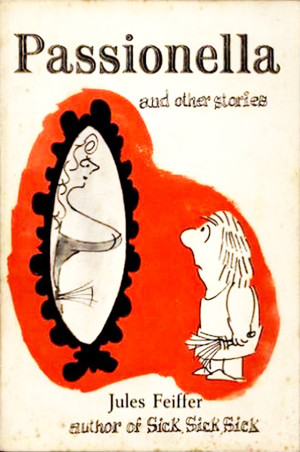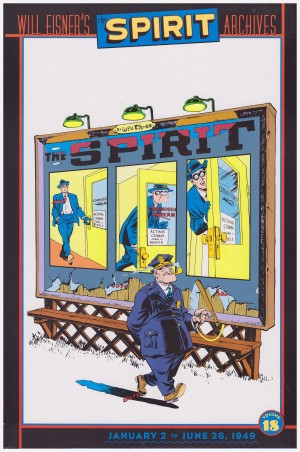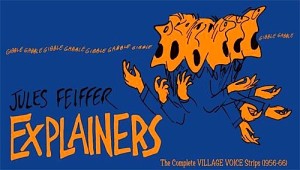Review by Woodrow Phoenix
Sick, Sick, Sick was the first collection of comic strips by the Pulitzer Prize and Oscar-winning Jules Feiffer, published in over fifty newspapers in the USA and in The Observer, a Sunday newspaper in the UK. Jules Feiffer’s now very distinctive work began appearing in The Village Voice, a New York weekly paper in 1956. The strip is a commentary on New York life in general, so it doesn’t use many recurring characters. This gives Feiffer the freedom to make each one a fast in-and-out gag, using any kind of person he feels useful to the idea he wants to put across. The protagonists are an array of recognisable male and female New York types: artists, actors, bankers, intellectuals, sportsmen, children, shoppers, politicians.
Structurally these short interludes have the same basic pattern. Half are conversations that lead to some sudden insight, and the others a monologue where a person speaks freely about a subject that is bothering them or defends their position to an unseen interlocutor, much like a TV comedy sketch. Many of these satirical insights are based around social constructions, sexual situations, political ideas, or relationships between men and women. Feiffer is adept at caricaturing individual modes of thought, ways of behaving, popular ideas of the time, slang, and social codes. His people are very aware of how they appear, trying to justify themselves in psychoanalytic terms, trying to convince others or just miserably but hilariously commenting on their own shortcomings.
Feiffer’s drawing is scribbly and marvellously loose, emphasising movement and postures, revealing body language. He catches a great range of character types using just enough lines to describe a personality. There is a quite distinctive style to his layouts. There are no backgrounds and no panels or panel borders to denote edges anywhere. The characters float in a sea of white space with just their own scribbled selves, and their speech which is not confined by speech balloons, but floating freely around them.
In his introduction to the original edition, playwright Kenneth Tynan talks about Feiffer’s caricature abilities and his superb ear for dialogue that is authentic and very precise, attributes that a playwright would certainly value. Most of these strips would work perfectly well without visuals as little radio playlets, but the cartooning takes them to another place and makes them self contained little pieces of perfectly realised satire. This is classic and distinctive work that is as interesting now as when it was created.
Sick, Sick, Sick has long been out of print, but it was such a big seller that vintage and second-hand copies are very easy to find. In 2006, the contents of this book were reprinted in a different arrangement in Explainers, a new omnibus collection featuring the first decade of Feiffer’s strips from 1956–1966. It also formed the bulk of Feiffer: The Collected Works volume 3, issued by Fantagraphics in the 1990s.
